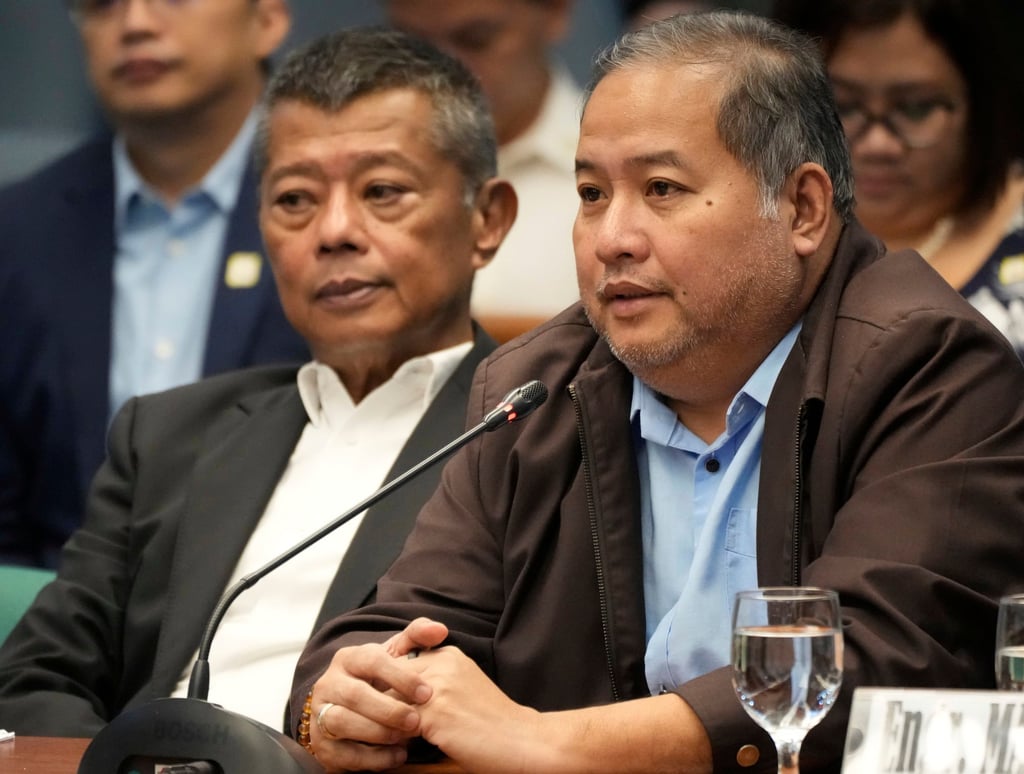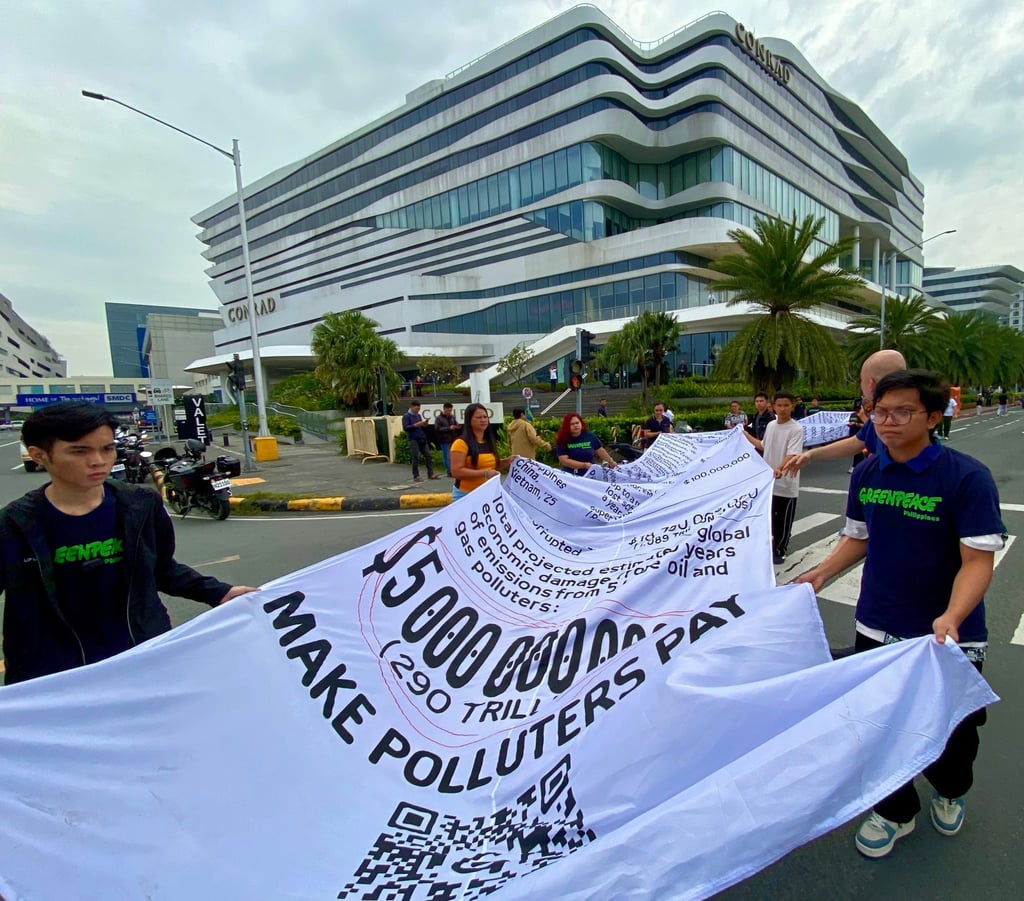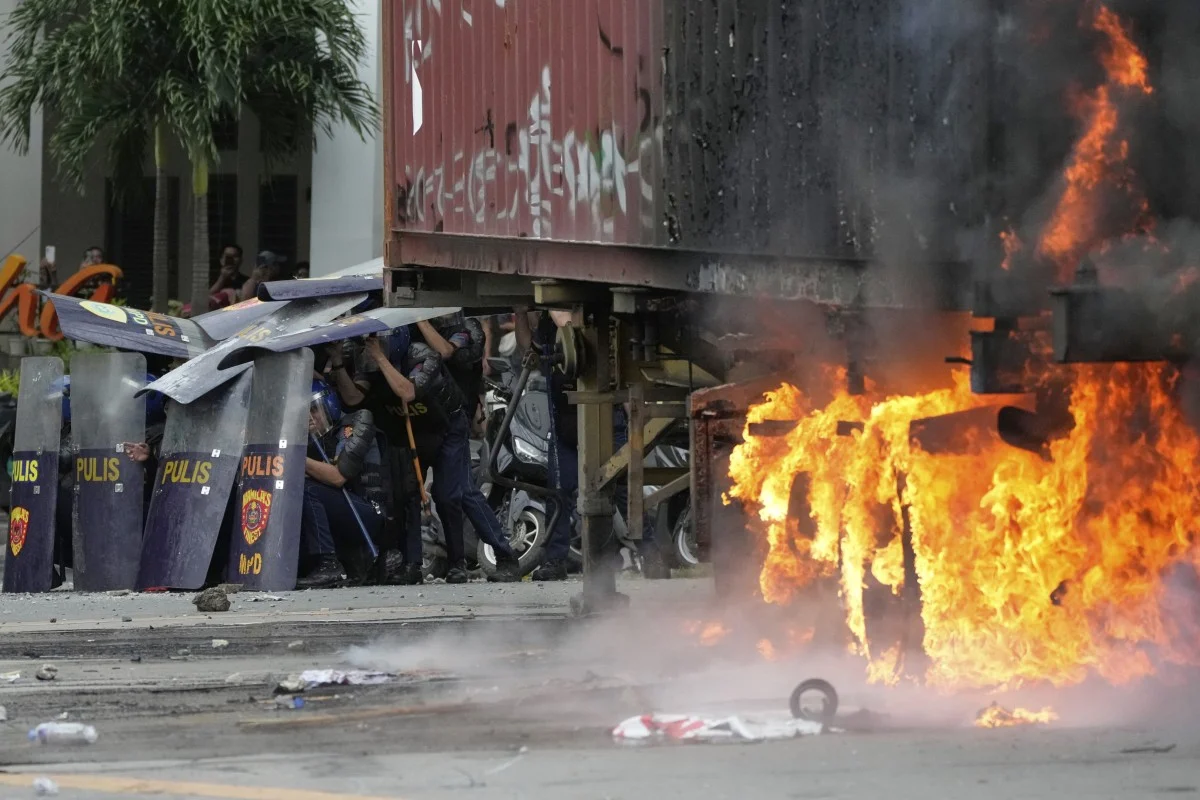As the Philippines faces a major corruption scandal involving flood control projects, the impact of the controversy has extended far beyond its borders. The scandal, which sparked nationwide protests last month, has shaken confidence in the country’s institutions and its economic stability.
The issue gained international attention after a Filipino television personality was denied a currency exchange transaction at Oslo Gardermoen Airport. The attendant reportedly cited “corruption and money laundering issues in the Philippines” as the reason for refusal. (Ho, 2025). Following her post, several Filipinos shared similar experiences at other exchange counters in Norway.
A Filipino resident in Oslo, Per Martin Grogaard, confirmed that the incident stemmed from strict European Union and NATO anti-money-laundering regulations. He explained that the Philippines, among other high-risk countries, faces tighter financial scrutiny. Other travellers, such as Rigel Revillo Gomez, described comparable experiences, noting that some money changers near the airport were more lenient
Worsening Effect

“International global markets have lost confidence not only in our government but in our currency as well” – Beleno III
Experts argue that these incidents reflect a growing lack of confidence in the Philippines’ financial reputation. Ramon Beleno III, head of political science at Ateneo de Davao University, warned that the 545 billion peso flood-control corruption scandal has already damaged market trust. The country’s stock market reportedly lost 1.7 trillion pesos within three months, signaling a significant drop in investor confidence.
Beleno cautioned that if authorities fail to act swiftly, the country could face a financial crisis similar to those experienced by Sri Lanka or Venezuela. Where both countries suffered severe economic collapse due to corruption and mismanagement. He also expressed concern over President Ferdinand Marcos Jr.’s decision to appoint his ally, Justice Secretary Jesus Crispin Remulla, as the new ombudsman. A move that could deepen perceptions of protectionism rather than reform.

The Financial Action Task Force (FATF) had previously placed the Philippines on its grey list in 2021. This for deficiencies in combating money laundering and terrorist financing. Although the country was removed from the list in early 2024 after showing improvement, confusion remains. The Department of Foreign Affairs later clarified that the Oslo airport’s exchange counter was using an “outdated list” that still included the Philippines as high-risk.
Meanwhile, analysts like Edmund Tayao emphasized the importance of verifying such incidents before drawing conclusions, warning that misinformation could worsen the situation. He noted that while some overseas Filipinos may face isolated incidents, there is little evidence of a widespread pattern of discrimination abroad.
Philippine authorities, including Ambassador Enrico Fo, have since reached out to Norwegian officials to resolve the misunderstanding. However, economists and political observers agree that restoring confidence will depend on the government’s ability to address corruption with transparency and urgency.

Reference
Maitem, J. (2025, October 9). Has Philippines lost world’s trust over flood-control corruption scandal? South China Morning Post. https://www.scmp.com/week-asia/economics/article/3328321/has-philippines-lost-worlds-trust-over-flood-control-corruption-scandal?module=perpetual_scroll_0&pgtype=article
